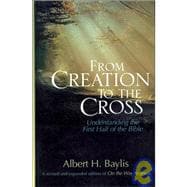
What is included with this book?
| Contents | |
| Acknowledgments | |
| Preface | |
| List of Maps, Charts, and Illustrations | |
| Abbreviations | |
| Part One | |
| Genesis 1–11 | |
| Basics for Understanding Life | |
| 1. The God of Creation (Genesis 1) | |
| 2. The Story of Human Relationships (Genesis 2–3) | |
| 3. The Effects of Sin: Loss of Order and Balance (Genesis 3–11) | |
| Part Two | |
| Genesis 12—Deuteronomy | |
| God’s Plan for Reversal | |
| 4. A New Beginning (Genesis 12–50) | |
| 5. A Redeemed People (Exodus) | |
| 6. A New Nation: The Law (Exodus–Numbers) | |
| 7. Living the Life: The Challenge of Deuteronomy | |
| Part Three | |
| Joshua—2 Kings | |
| Struggle for Consistency | |
| 8. Living by Faith (Joshua, Judges, and Ruth) | |
| 9. Modification to Monarchy (Samuel) | |
| 10. Nation Heading for Judgment (Kings) | |
| Part Four | |
| Life in the Land | |
| 11. Praise and Petition (The Psalms) | |
| 12. Prudent Living (Proverbs, Job, Ecclesiastes, Song of Songs) | |
| 13. The Prophets of the Divided Kingdom | |
| 14. The Prophets of Judah and Exile | |
| Part Five | |
| Restoration and Hope | |
| 15. A Peg in the Holy Place (Ezra–Nehemiah, Chronicles, Esther) | |
| 16. The Second Temple (Haggai, Zechariah, Malachi) | |
| 17. Themes for the Future: New Testament Update | |
| Scripture Index |
The New copy of this book will include any supplemental materials advertised. Please check the title of the book to determine if it should include any access cards, study guides, lab manuals, CDs, etc.
The Used, Rental and eBook copies of this book are not guaranteed to include any supplemental materials. Typically, only the book itself is included. This is true even if the title states it includes any access cards, study guides, lab manuals, CDs, etc.
Excerpted from From Creation to the Cross: Understanding the First Half of the Bible by Albert H. Baylis
All rights reserved by the original copyright owners. Excerpts are provided for display purposes only and may not be reproduced, reprinted or distributed without the written permission of the publisher.